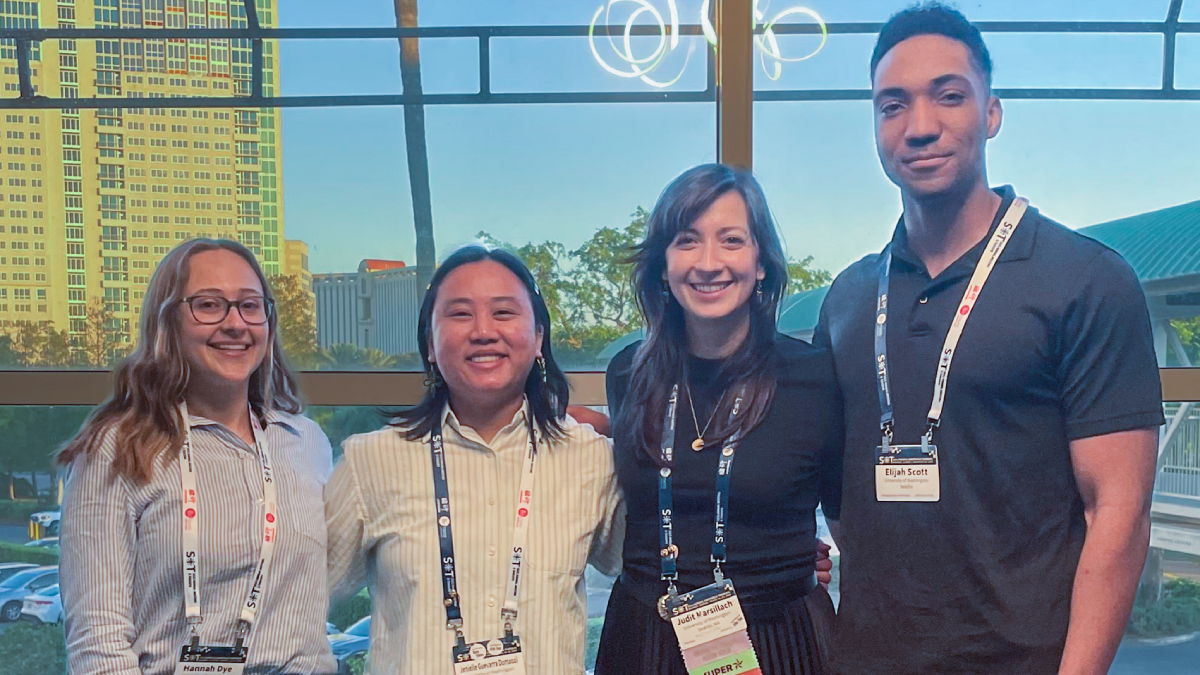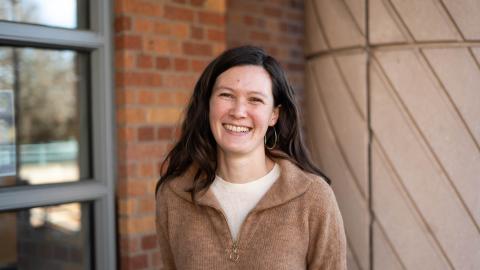More than a dozen students in the UW Department of Environmental & Occupational Health Sciences (DEOHS) attended the 2025 Society of Toxicology (SOT) Annual Meeting and ToxExpo in Orlando, Florida last month. Seven students took home awards for their work in areas ranging from e-cigarette toxicity to the gut microbiome. Learn more about their research and what inspires them below.
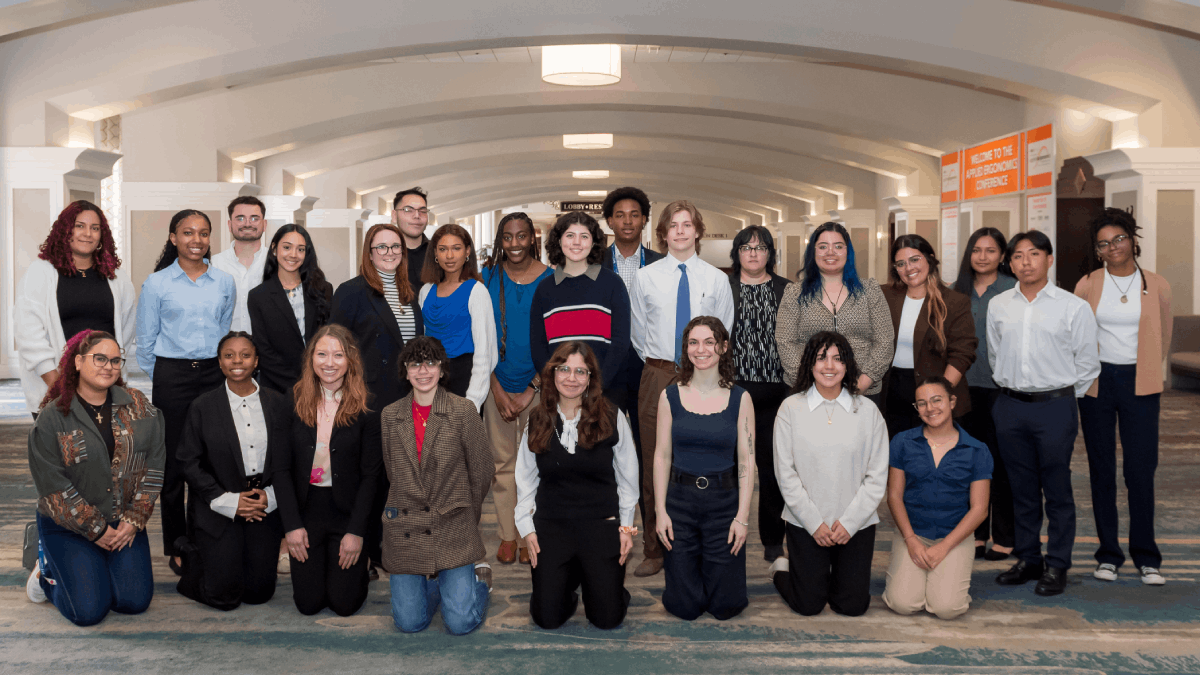
Naomi Alvarez, BS student
Award: Toxicology Mentoring and Skills Development Training (ToxMSDT) program
Lab: Judit Marsillach
Research: I am assisting with two separate research projects: one investigating the adverse health effects of traffic-related air pollution and the other looking at the adverse health effects of e-cigarette aerosols.
Reflections: I am interested in toxicology because it blends many sciences and relates to public health. I am passionate about helping my community, especially disadvantaged and vulnerable populations who are disproportionally affected by toxic agents in their environments.
Jenielle Domaoal, MS Thesis student
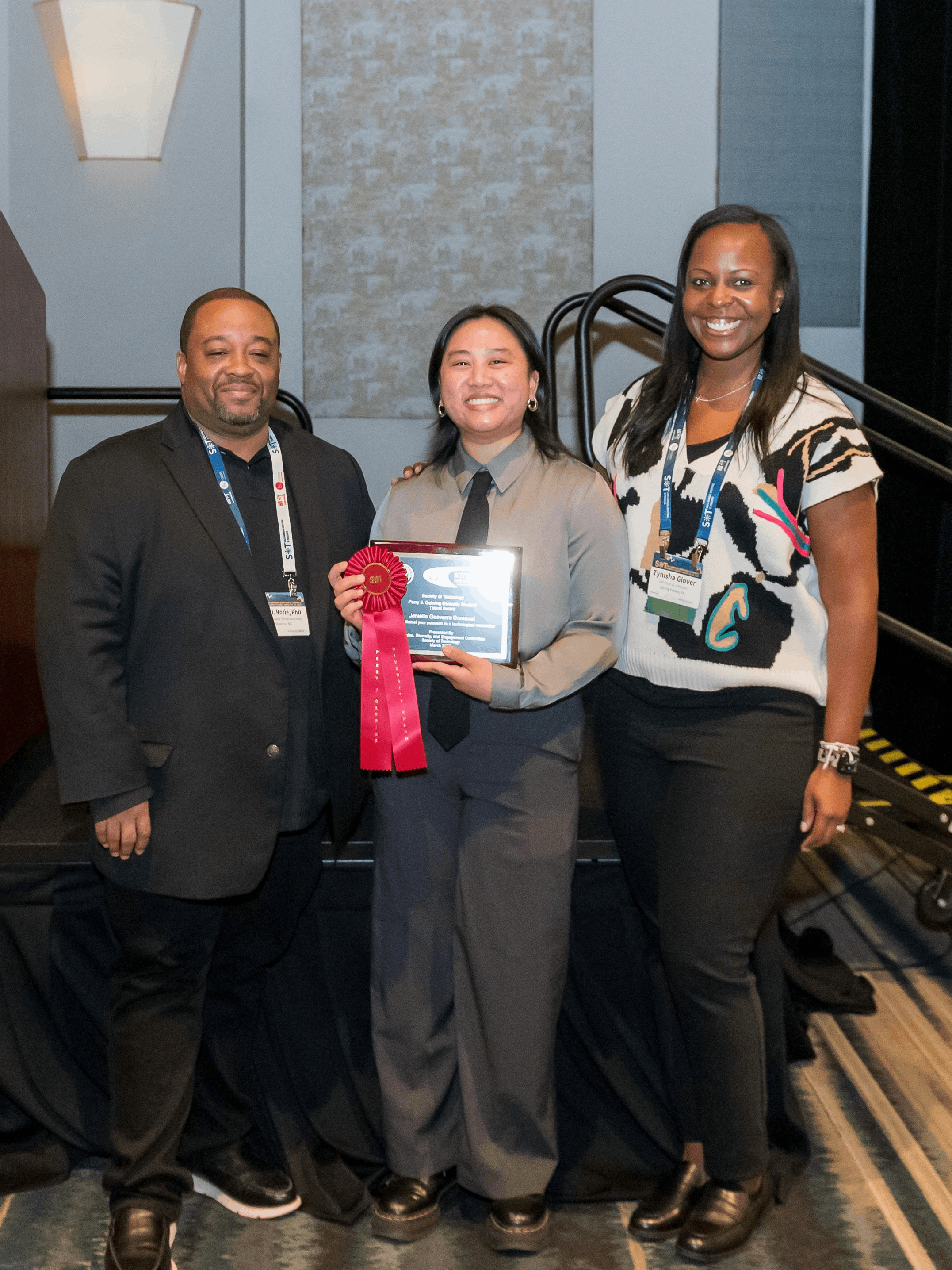
Award: Society of Toxicology Perry J. Gehring Diversity Student Travel Award
Lab: Judit Marsillach
Research: The research I’m presenting at SOT focuses on environmental pollution from electronic cigarettes. Conventional cigarettes are one of the most commonly found aquatic pollutants. However, with the rise in electronic cigarette usage, there is an increasing trend in e-cigarette waste and chemical release into aquatic environments. We wanted to determine whether e-cigarettes, such as vapes and heated tobacco products, are toxic in aquatic environments and if this toxicity is comparable to that of conventional cigarettes. I started this project as an undergrad at San Diego State University with Dr. Kari Sant.
For my thesis, I’m going to switch gears. I’ll be researching how exposure to diesel exhaust may impact neurodegeneration in the context of Alzheimer’s disease and the role of microglia, immune cells in the central nervous system, in this process.
Reflections: My research reminds me that there are so many things out in the environment that you don't really think about that may be affecting your health. It can be kind of scary, but it's also very powerful to know what can affect you.
Sarah Kim, PhD student
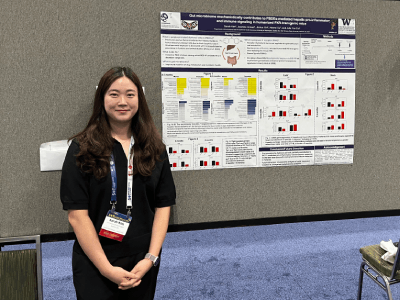
Awards: Pacific Northwest Association of Toxicologists (PANWAT) Andreasen Award for Excellence in Research and Scholarship
Lab: Julia Cui
Research: My research focuses on maternal exposure to polybrominated diphenyl ethers (PBDEs) — a class of previously used flame retardants — and their impact on the gut-liver axis. PBDEs, despite being phased out, remain environmentally persistent and continue to pose health risks due to their bioaccumulative nature.
Reflections: At SOT, I look forward to exploring new research ideas, building connections across institutions, and expanding my professional network — all of which will be invaluable as I prepare for the next steps in my career after graduation.
Joe Lim, PhD student
Awards:
- Paper of the Year Award, Molecular Systems Biology Specialty Section (MSBSS)
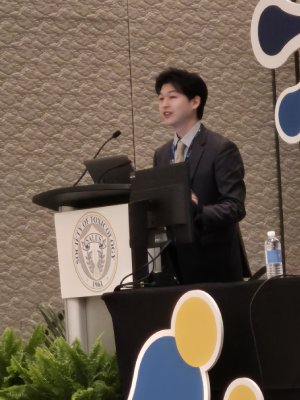
Joe Lim presents a talk at the SOT meeting. Photo: Courtesy of Lim. Best Research Award, MSBSS
- Burdock Group Student Scientific Award, Food Safety Specialty Section
- Ronald G. Thurman Travel Award, Mechanisms Specialty Section
Lab: Julia Cui
Research: A central focus of my research is the gut microbiome — the vast community of intestinal microorganisms that are often the first responders to ingested food contaminants and xenobiotics. Applying my training during my graduate school journey, others and I have demonstrated that the gut microbiome plays a critical role in how the host responds to toxicants and supports liver health via the gut-liver axis.
Reflections: At SOT, I hope to learn about the cutting-edge science and research from scientists around the world and network with them. I was invited to give a platform presentation to showcase my findings and get valuable feedback from other experts. Lastly, I am looking forward to career and professional development and being exposed to the regulatory and scientific trends that are relevant to my research and the applications that my research can have.
Isabelle Ngo, BS student
Award: Undergraduate Student Research Award, MSBSS
Lab: Julia Cui
Research: My research consists of determining the effects from being exposed to a specific banned flame retardant, BDE-99, that persists within the environment. We looked at how the exposure affects the gut microbiome and how it would affect our gut functions. Our key findings showed that it caused effects to the gut's immune system through upregulating and downregulating genes related to the gut's immune system.
Reflections: This research is very rewarding to me as I'm hoping that this information may help incentivize more environmental regulations for the health of the environment and our own health. Additionally, it was wonderful to have the privilege to be able to share this research and the key findings with others.
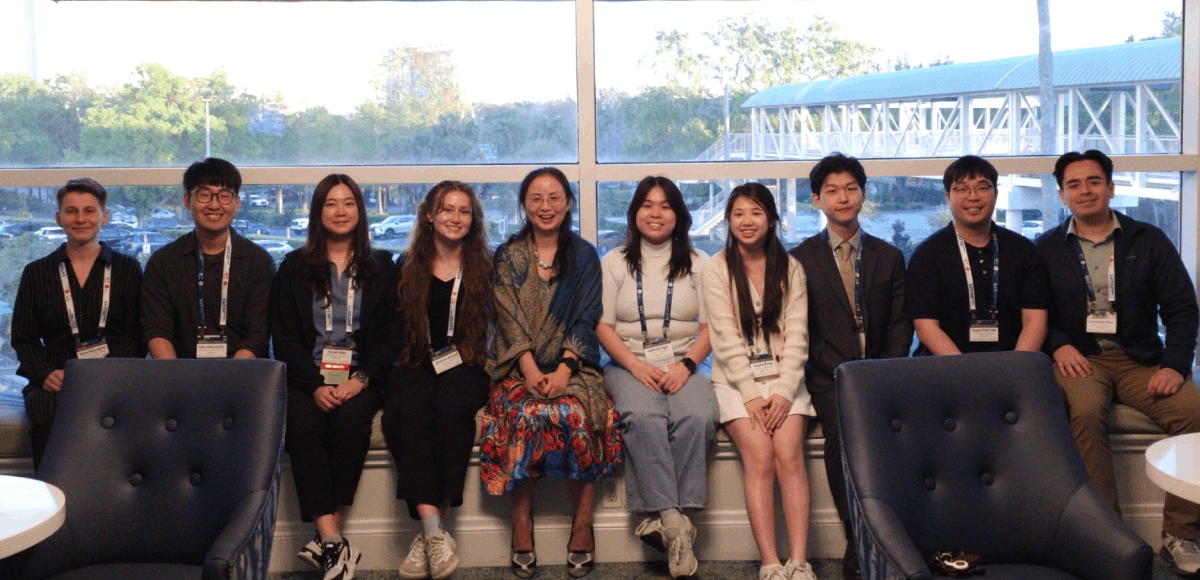
Cayen Rong, BS student
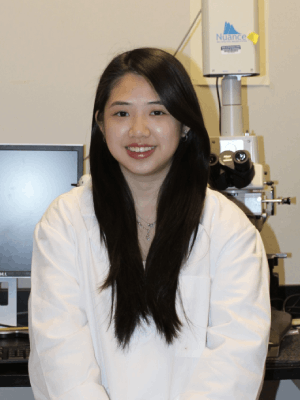
Awards:
- Undergraduate Student Research Award, MSBSS
- PANWAT William M. Baird Travel Award
Lab: Julia Cui
Research: My research looks at how the bacteria in our gut respond to harmful chemicals and how that affects our health. We found that exposure to a flame retardant called BDE-99 early in life can change gut bacteria and weaken parts of the immune system later on after reaching adulthood and beyond. This shows that what we’re exposed to as infants can have a lasting impact on our gut health and how our bodies fight disease.
Reflections: I'm passionate about environmental health because it reveals how early exposures can shape lifelong well-being, and I hope my research contributes to better understanding our vulnerable communities. Attending SOT gave me valuable insight into the potential and creativity driving innovation in toxicology.
Elijah Scott, PhD student
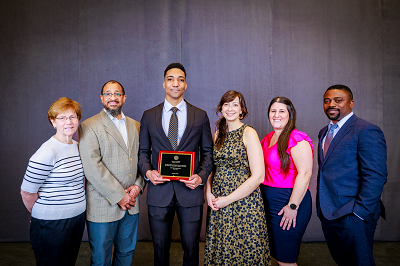
Lab: Judit Marsillach
Research: I am looking at the impact of diesel exhaust on metabolic dysfunction. Obesity is a really prevalent issue, and it's a complex disease that's being driven by a lot of different factors, including genetic predisposition, behavioral factors and environmental influences. Diesel exhaust is one of the most prevalent air pollutants in the urban environment. I want to understand how this complex mixture, which contains a lot of different toxic chemicals, could be driving metabolic dysfunction.
Reflections: The staff and faculty at DEOHS have been extremely supportive of my journey, and provided me with the resources and knowledge to build myself as an independent researcher. I'm looking forward to contributing to the culture and providing for the next generation of toxicologists who come after me. Hopefully, I'll be able to leverage my expertise to help policy decisions and contribute to our understanding of harmful pollutants.
